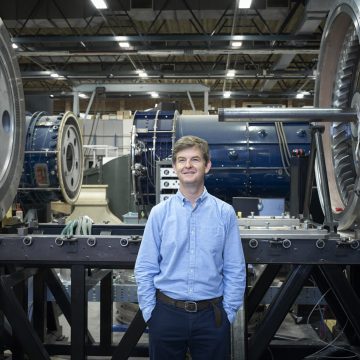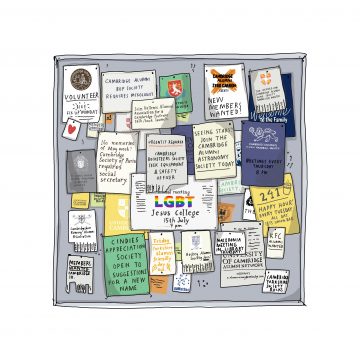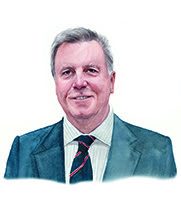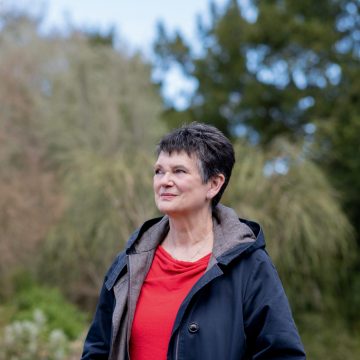Global action
When it comes to combating climate change, talk is cheap. Instead, we need leadership, dedication and commitment to get things done. Which is perhaps why so many Cambridge alumni, from across the world, are working to drive change. Here are the people on the very frontline, and the projects they lead that are making a real difference.
Metropolitan Group
Rob Sassor
Conservation Leadership, 2010-2011
Rob Sassor’s light bulb moment on climate change came when he was working on a water project for local communities in Tanzania. “I went to a USAID climate meeting and the experts were forecasting that the warmest day in the region today would be the coldest day in just 50 years’ time. It just seemed so unfair that a place where the people had so little impact on carbon emissions would become essentially unliveable before the end of this century.”
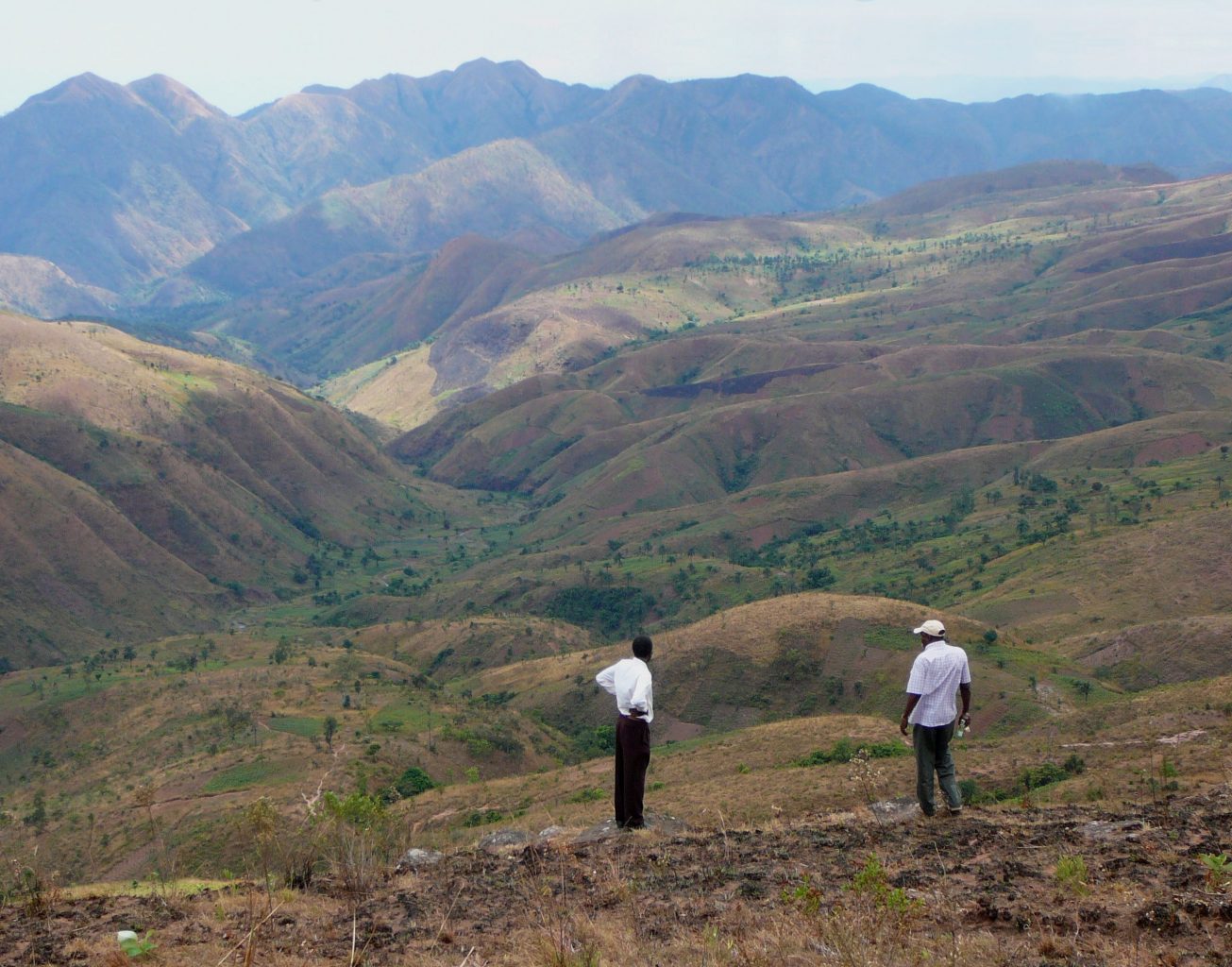
The Jane Goodall Institute facilitates democratic forest regeneration, safeguarding watersheds for the benefit of people and chimpanzees.
Rob Sassor / The Jane Goodall Institute
Sassor (Robinson 2010) worked as a researcher and writer for the primatologist Jane Goodall (Newnham 1962) before moving to join her Institute at Gombe in the Kigoma District of Tanzania, and from here he learnt the power of narrative. “I ran a successful multimedia campaign against wildfires in Tanzania, created with artists, athletes and educators. I have always been a writer at heart, and my bias is in favour of creating stories to build public and political will.”
We are helping NASA get their Earth science into the hands of people who can use it to benefit us all.
At the social change agency, Metropolitan Group, part of his role now is to make connections. “To affect change, we need to connect at a deep value level with people who might initially be seen as opponents. For a long time, the narrative around climate change has been getting in the way rather than helping, with the issue still polarised if not paralysed in the context of US domestic policy. On clean energy, we have managed to change the narrative towards global competition and jobs, which has resonated with broader audiences. And now we are seeing some action, with an increasing number of cities and states committed to transitioning to clean energy solutions.”
One of Sassor’s key connections has been with the NASA Earth Science Division, which manages the most sophisticated monitoring system on ecosystem change and adaptation. “We are helping NASA get their Earth science into the hands of people who can use it to benefit us all. And when NASA is in the room, other groups realise they have to step up – that it’s time to innovate and think more holistically about the Earth as a system.
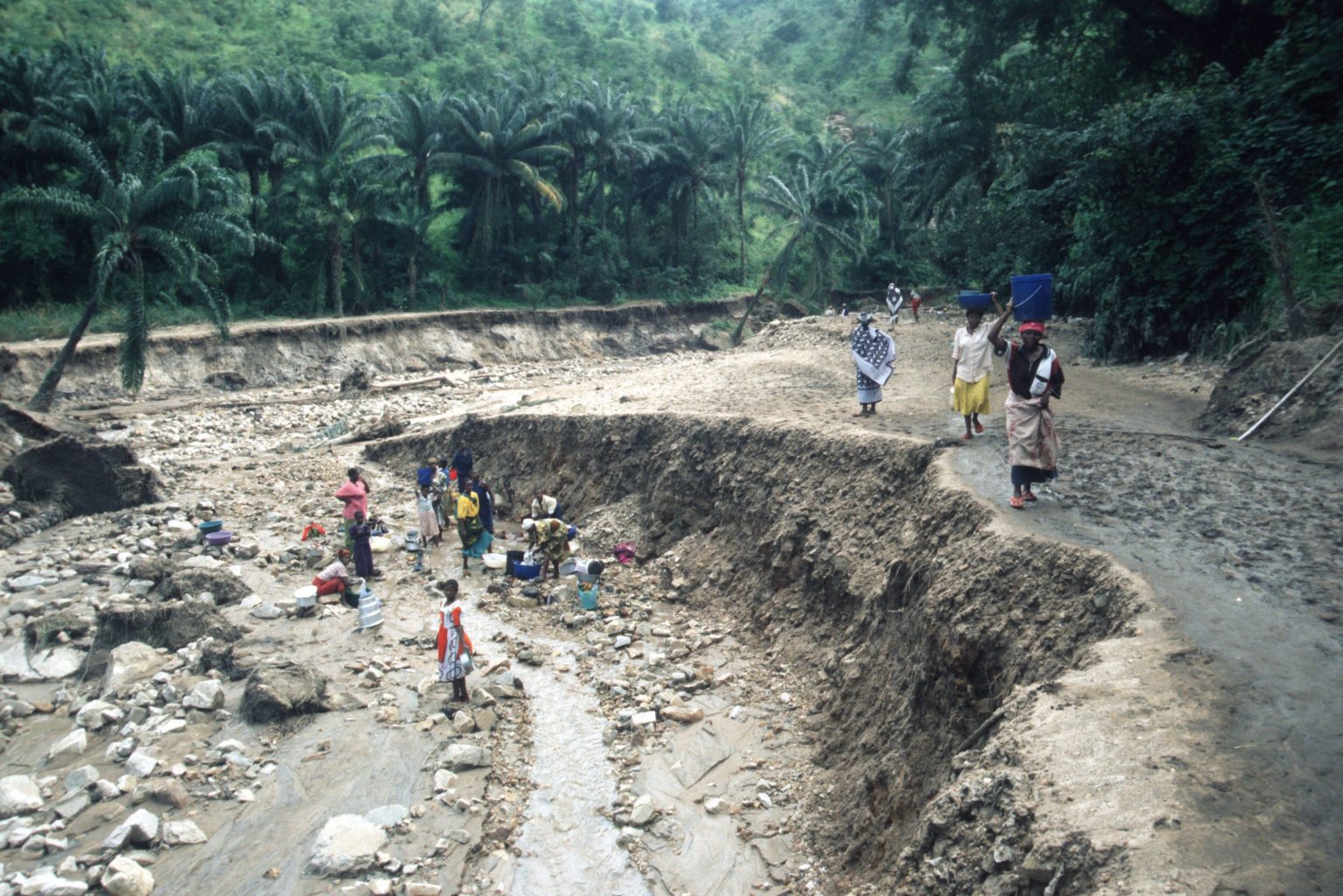
Water is collected from a sediment-laden stream in the aftermath of a landslide which destroyed livelihoods and claimed several lives.
Lilian Pintea / The Jane Goodall Institute
“There are days, at my desk in Washington DC, when I still remember looking out from my computer to see the jungle forest in Gombe. Or walking the land in Sikonge with hydrology experts in search of signs of water. So much of the climate work I do today is inspired by my formative experiences in Tanzania, and the people who ushered me toward this life’s work.”
The Cropper Foundation
Omar Mohammed
Sustainability Leadership, 2019-21
Growing up in the Caribbean, Omar Mohammed (Robinson 2019) says he was privileged to spend much of his time in nature. Later, a degree in environmental and natural resource management at the University of the West Indies led to his interest in the human and social side of environmental studies. “Trinidad and Tobago is an outlier in the Caribbean, outside the hurricane belt and only 4km from the coast of South America. The economy is dependent on fossil fuels and energy, and is heavily industrialised. There is incredible biodiversity but a real lack of protection of the environment. Most people aspire to work in the energy sector for the higher salaries.”
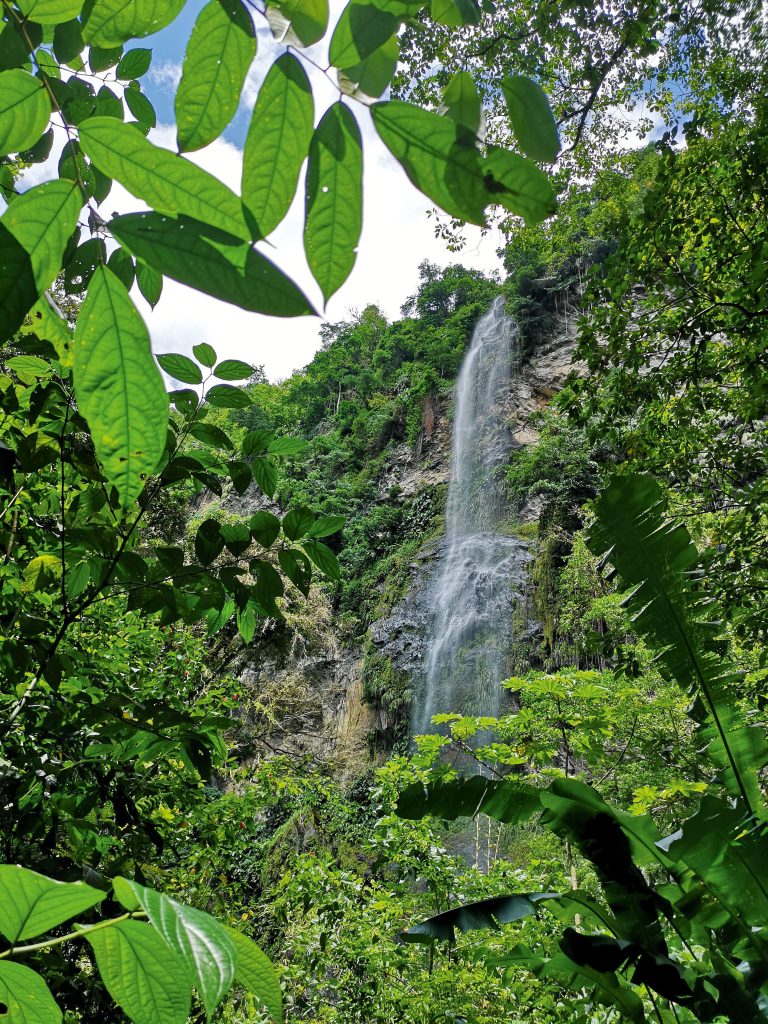
The beautiful Maracas Valley is under threat from slash and burn deforestation, extensive quarrying, and population influx.
Alexander Girvan / The Cropper Foundation
After working for the national arm of UNESCO (and with several other civil society organisations), Mohammed was attracted to apply for the Master of Studies (MSt) in Sustainability Leadership course by the leadership aspect.
“I felt I needed a course that would help me in my new role as CEO. I looked all over the world and chose Cambridge because of the similarities in the course modules to many of our own ideas in the Caribbean, from natural capital to multi-stakeholder approaches. I was also looking to build a network of others working in the field.”
Through his MSt, Mohammed has found that network. “I was the only person on the course from an NGO in a small island state, most of my fellow students were senior corporate professionals from the global North, but there was a real openness and emotional support and an eagerness to listen to and learn from perspectives from the global South. I learned just as much from other members of my cohort as I did through the formal training.”
I don’t just want to be seen as a tree-hugging environmentalist but as someone who can engage with the corporate sector and talk in a way that they will understand
Mohammed is now CEO of the Cropper Foundation, a non-profit foundation that brings together people, ideas and approaches for more environmentally sustainable and just development in the Caribbean Region, primarily in the fields of environmental resource governance and management, sustainable agricultural livelihoods and education for sustainable development.
And he has acquired the language needed to put the environmental case to the private sector back home. “I don’t just want to be seen as a tree-hugging environmentalist but as someone who can engage with the corporate sector and talk in a way that they will understand. I have learned to talk their language to make the case for nature – because we need all sectors on board for a more sustainable tomorrow.”
The Climate Group
Helen Clarkson
Philosophy, 1993-96
Trekking across the Glacier National Park in Montana was a moment of true personal insight for Helen Clarkson (Corpus 1993). “I noticed that the glaciers seemed smaller and there were fewer of them. Before that I suppose there had been a slow realisation that the climate emergency was the issue of my time. But those glaciers made me ask myself, what are you really going to do with your career? This is the most important issue facing the world. I knew I wanted to be involved in mission-driven work – and here was the mission.”
We are seeking to create major coalitions between governments and business, with campaigns like EV100, aiming at making electric transport the new normal by 2030
Her path had been determined some years earlier. When she graduated from Cambridge, she was too young to join Médecins sans Frontières (MSF) so she trained as an accountant. “But as soon as I reached 25, I was off. I did four years in the field in Africa with MSF, including working with the last mission in the Congo, where I ran a field hospital, and provided basic healthcare in South Sudan. I saw how environmental issues affect the economy and society. When the rains fail and the crops are poor so many suffer, particularly the women.”
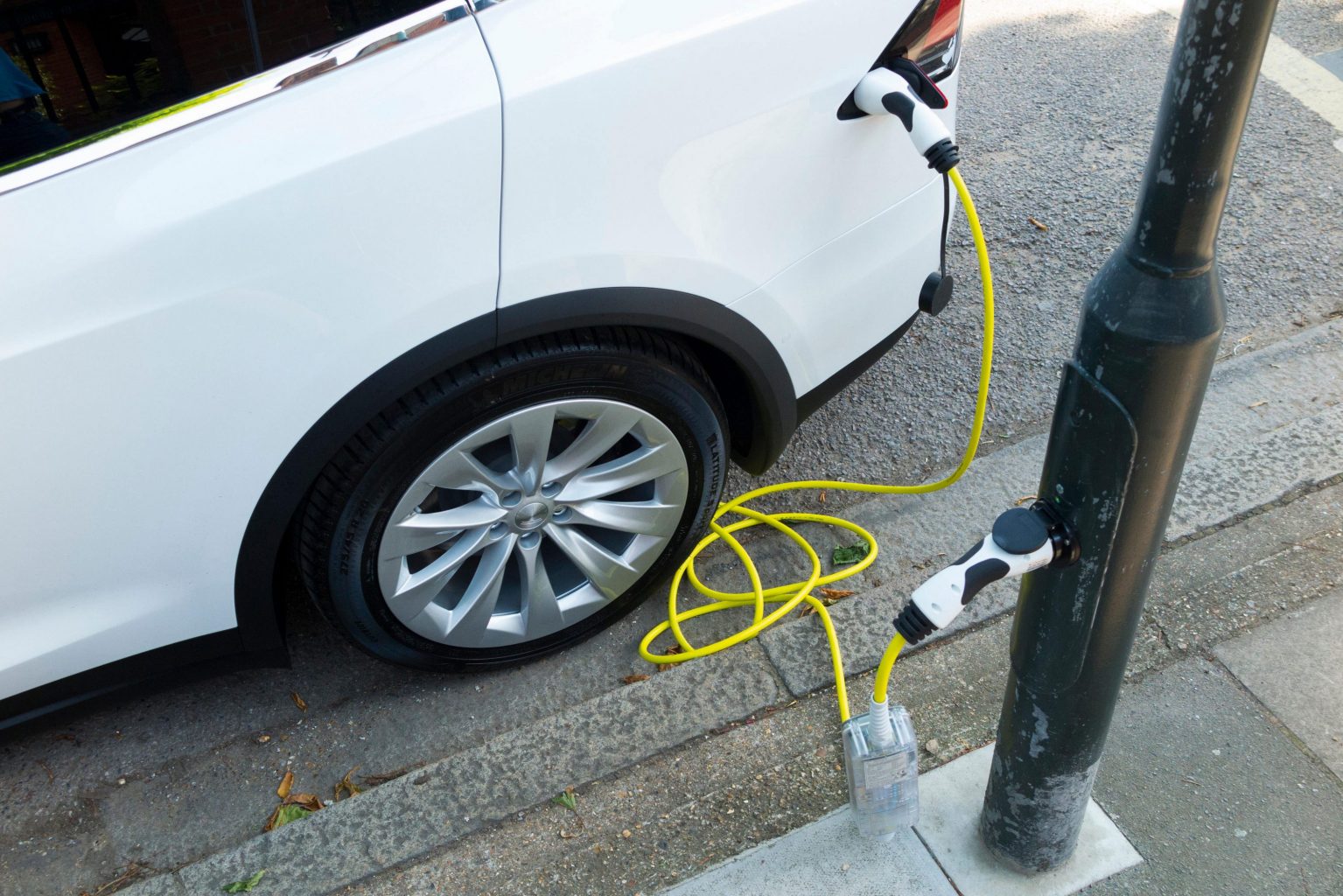
A smart cable conversion enables vehicle charging from a lamp post
David Gee / Alamy
After her Montana epiphany, Clarkson spent a decade working in the US with Forum for the Future, seeking to persuade organisations to include the environment in their business strategy. Four years ago, she moved back to the UK to take up her current role as CEO of The Climate Group, whose stated mission is to drive climate action, fast.
“We are seeking to create major coalitions between governments and business, with campaigns like EV100, aiming at making electric transport the new normal by 2030. RE100 is our global corporate renewable energy initiative, bringing together businesses committed to 100 per cent renewable electricity. Here we are pushing for action both on the supply side and among policymakers.”
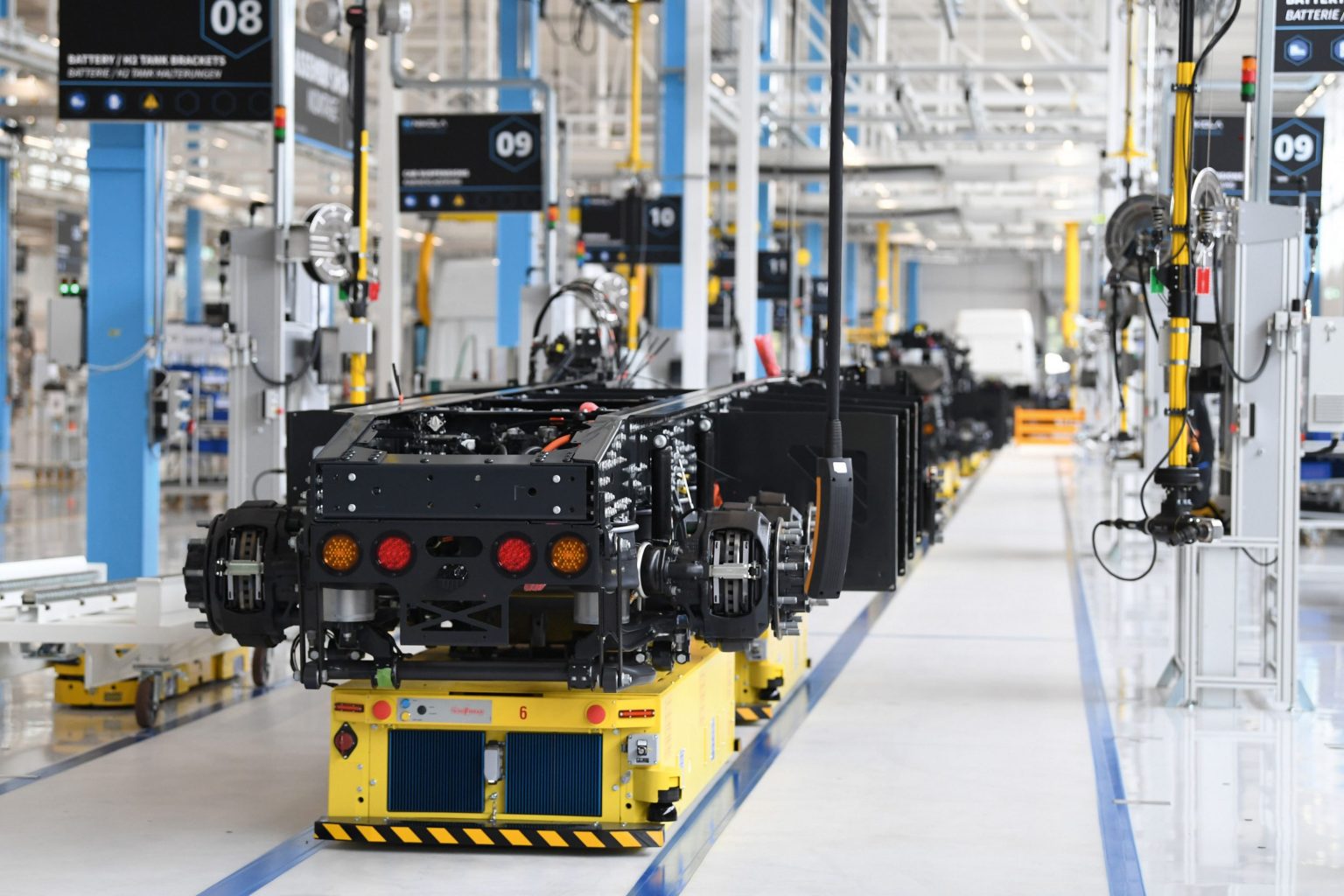
Nikola Iveco preparing to start series production of electric heavy-duty trucks
Andreas Gebert / Bloomberg / Getty
Her message is that business cannot afford to wait. “The cost of not acting now is so much greater than doing nothing. It is never going to be fast enough, but right now the tailwind behind climate action has never been stronger.”
Race to Zero
Fiona Macklin
Modern Languages, 2012-16
As the Race to Zero Campaign Coordinator, Fiona Macklin (St John’s 2012) and the Climate Champions’ team are rallying non-governmental organisations to take rigorous and immediate action to halve global emissions by 2030 and deliver a healthier, fairer zero carbon world in time. “We are seeing an exponential growth in commitment. The campaign now comprises more than 4,470 businesses globally, 799 cities, more than 45 healthcare institutions, 730 higher educational establishments and 35 regions. Now our focus lies on translating these commitments into meaningful action.”
The smoke was so acrid you couldn’t go outside without a mask for a week. It was the moment I knew I had to dedicate my career to the climate emergency.
Macklin was studying in Australia during the bushfire crisis in early 2020 when she volunteered for the Red Cross as Team Leader in the Emergency Services Department. She found herself in Mallacoota, one of the worst hit areas in the state of Victoria. “It was viscerally frightening. I had never been so directly exposed to such a climate-related disaster. It is so clear that the climate emergency cannot be seen as ‘somebody else’s problem’. Even in the city of Melbourne the smoke was so acrid you couldn’t go outside without a mask for a week. That was when I knew I had to dedicate my career to the climate emergency.”
Macklin feels privileged and empowered to be working on the climate emergency but believes that addressing the climate crisis should intrinsically be a core part of everyone’s job, and influence everyone’s lifestyle. “COP26 was the most pivotal COP yet. It is not too late to prevent the worst impacts from climate change, but it risks being too late very soon. We need a concerted effort from all of society to step up to the challenge and seize the opportunities in front of us. Through radical collaboration, I feel optimistic that we can put ourselves back on the right path. We just need to do so very quickly.”
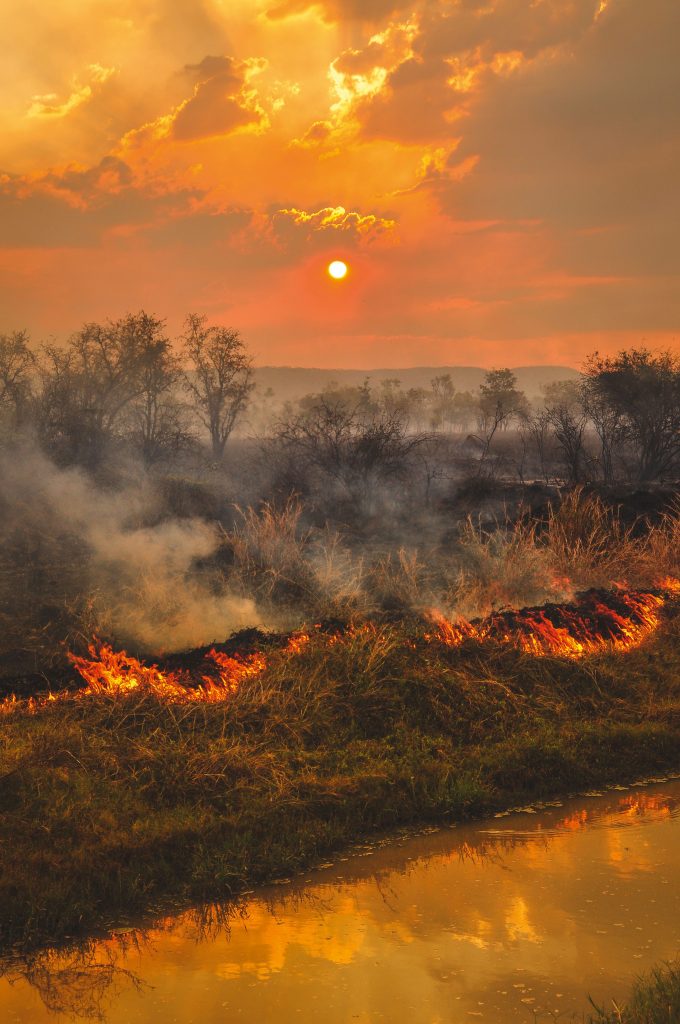
In 2020, Australian bushfires scorched 18.6 million hectares, the equivalent of almost 77% of the UK’s total land area.
John Crux / Getty
Macklin and four fellow rowers from the Blues boats of 2014 to 2018 are also contributing to raising awareness among alumni. “We are supporting the University in setting up a network to expand knowledge of the crisis, with concrete tools alumni can use to take action at many different levels. We need to empower each other as individuals so we can fight this together because, unlike other races, this is one we either all win or we all lose.”
Alumni Fiona Macklin, Melissa Wilson, Kirsten Van Fossen, Catherine Foot and Claire Lambe are working with the University to form the Cambridge Alumni Climate Network. Find out more.

